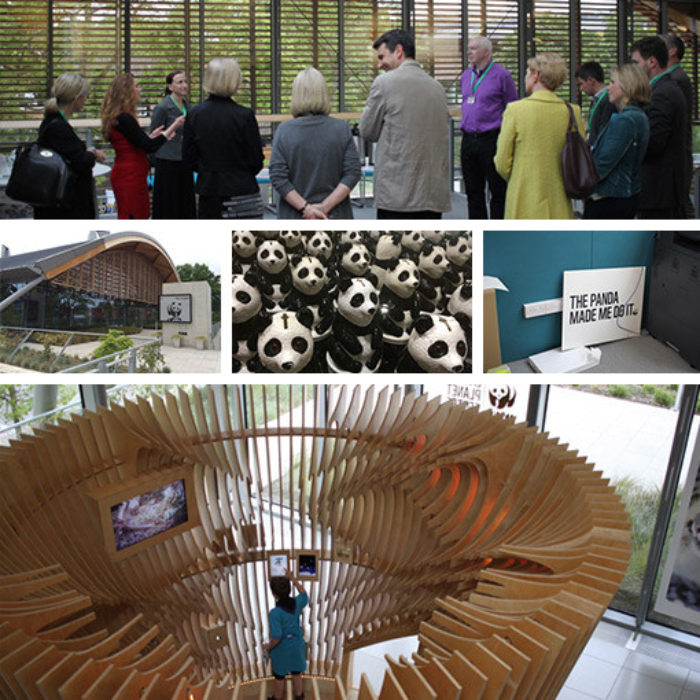Read our #AnthropyActions: Six New Year’s resolutions that will last
I shared a taxi with Charlotte Turner (Founder and Director of Bean Research) on the way to this year’s Anthropy event at the Eden Project.
We discussed the superficiality of a lot of goals, targets, pledges, promises and commitments that organisations make. We discussed the absence of accountability. And we discussed the need for an accompanying delivery plan that tracks and measures progress.
This leads me to my first Anthropy Action:
#1: Make meaningful commitments1
Starting with these #AnthropyActions, I’m going to make sure that every commitment I make has a transparent delivery and measurement plan so that I can hold myself accountable, as can anyone else who cares to read the Appendices below.
On the future of education and training
Reflecting on my own journey through the education system, I didn’t realise the pleasure of learning until I was free to do so on my own terms. Perhaps we could relieve some of the pressure that we put on students, rediscover the joy of learning, better prepare students for the world of work, and give employers a richer impression of candidate capability by setting students up with portfolios of work, rather than a heavy emphasis on grades.
What if, for instance, tests weren’t for grading individuals, but treated as opportunities for identifying the areas that require further tuition, the learning styles that work best for individuals, and the opportunities to communicate learnings better next time around?
As it is, learning and working are treated as two steps in a linear process:
- We learn skills and information at school/ college/ university, and
- we then get a job and apply what we learned at work.
The reality, of course, is that: demand for skills evolve and change; research that formed the foundation of what we once thought to be true isn’t always replicable; new findings, knowledge, emerging technologies and ways of thinking change what we do and the way we do it; and unexpected challenges and barriers change our course of action.
A lot of the learning we do before we start our working lives very quickly becomes obsolete.
Whether we like it or not, we’re all learning on the job. So, my next Anthropy Action:
#2: Weave education into the way we work2
On A.I. and digital transformation
There is a wealth of information at our fingertips. We can find out anything, on demand.
Advances in artificial intelligence mean that it’s easier for us to write, code, research, translate, and get advice. This means it’s increasingly valuable to learn different ways of thinking (more-so than memorising facts and figures), and to:
#3: Ask the right questions.3
And as a business, some of the key questions we need to be asking about A.I. are:
- How are colleagues using artificial intelligence to help them work?
- And what can we do to support their use of A.I. in a way that doesn’t compromise organisational safety and security?
You can read more about our thoughts on A.I. in this blog.
On equity, diversity, and inclusion
How do we remove bias from the recruitment process and make it accessible to all? How do we make sure the voices of young people are heard and taken seriously, whilst maintaining the wisdom of an ageing workforce? How do we not just invite everyone to the party, but invite them to dance and make it easy and appealing for them to do so?
#4: Allow for freedom within the framework4
I’ve started approaching everything with a modular mindset. Enabling and offering different and alternative ways of achieving the same thing. So that whether you’re more breakdance or ballroom, the dancefloor is fit for purpose.
On carbon neutrality and sustainable transformation
In August 2022, Faith in Nature became the first company in the world to make nature a director.
Say less.
#5: Give nature a say on the decisions that impact it5
On Ethical Practice
The Institute of Business Ethics shared its guidance for developing an ethical business culture. Among the advice is the importance of clearly articulated purpose and values statements. These should be developed by senior management following engagement with employees and other stakeholders. The IBE also highlighted the importance of openness and effective communication: bottom up, as well as top down. Making my final Anthropy Action…
#6: Listen6
—
Appendix
1Make meaningful commitments
From now on, I will ensure that every commitment I make has a detailed delivery plan and a transparent measurement plan, with specific performance indicators to track progress. These plans will be reviewed and updated on a weekly basis and progress will be shared with all stakeholders to maintain transparency and accountability (A.I. rates this SMART commitment: 8.4/10).
Moving forward, I’m going to approach all commitments in the same way we do live project commitments:
- Ensure commitments are specific and measurable. I will train and use A.I. to rate and refine the SMART-ness of my commitments.
- Document each commitment, and assign ownership. This will be tracked on our CRM platform.
- Break it down into action steps with deadlines and milestones, and assign roles and responsibilities. These #AnthropyActions are personal commitments, so ownership, roles and responsibilities are assigned to me by default. This will be tracked on our CRM platform.
- Establish the KPIs and determine how data will be collected and reported, making progress visible to all stakeholders. For this, we are looking at the percentage of commitments made that also include a transparent delivery and measurement plan. I will update this blog periodically with an indication of progress towards each of these commitments.
2Weave education into the way we work
I will continue to use the established learning techniques and channels, work to prompt their adoption across the organisation, and make their use as easy and accessible as possible. Progress will be measured by participation rates and employee feedback. Furthermore, I will explore within the next Quarter development of a training platform that puts the emphasis back on learning (A.I. rating of 8/10).
- I’m subscribed to subject-relevant newsletters, have alerts set up for subject-relevant news, and follow subject-relevant pages and groups on LinkedIn.
- We’ve established a cross-departmental Teams channel for sharing and discussing news and learnings, and have a library of resources accessible on SharePoint. Participation rates in the Teams channel will be tracked.
- We meet weekly to discuss live projects and learnings from them; we also conduct project feedback surveys, and have a document template for sharing learnings following project wrap-up.
- I’d like to explore development of a training platform. This requires further thought.
- We track and measure learning on the job within our colleague survey.
3Ask the right questions
By the end of the Quarter I will have developed and implemented a framework to enhance our ability to ask targeted, purpose-led, data-driven questions (A.I. rating: 7.6/10).
- Be led by purpose and data.
- Define what the answer will feed, and keep sight of that clearly articulated purpose.
- Work to understand the context and the questions that have already been asked and answered.
- We will continue to seek feedback from the people we’re asking questions on behalf of, and the people we’re asking questions to, to confirm if the questions we ask are fit for purpose.
4Allow for freedom within the framework
Within the next 12 months we will review and revise our existing policies, frameworks, hiring practices, and feedback mechanisms to ensure there is freedom within them to allow for diverse approaches. We will continue measuring progress within colleague surveys, and explore additional measurement opportunities to combat selection bias (A.I. rating: 8.2/10).
- Continue to offer flexible working arrangements to accommodate different lifestyles, family responsibilities, and cultural practices.
- Audit existing policies, frameworks, hiring practices, and feedback mechanisms to identify and eliminate any barriers to EDI. Update them to be more inclusive, and ensure they are flexible enough to accommodate diverse approaches.
- Continue tracking and measuring success within our colleague survey.
- Explore the possibility of also tracking and measuring success with ex-colleagues in exit interviews and near-colleagues following hiring processes – in case of selection bias.
5Give nature a say on the decisions that impact it
With the outlook of appointing Nature to the Board of Directors within the next 12 months, I will begin a dialogue with the current Board of Directors and develop with them an action plan for achieving this (A.I. rating: 6.6/10).
- Share resources with the company Directors and explore with them the possibility of appointing Nature to the board.
6Listen
In general (but with a particular intent to ensure ethical practice), over the next six weeks I intend to demonstrate active listening in every conversation at work by helping colleagues of all levels, as well as clients, feel comfortable joining me in open and honest dialogues. As part of each dialogue, I aim to check in and make sure I fully understand the other person’s perspective (A.I. rating 7.8/10).
- Seek out diversity of experience and opinion.
- Exercise active listening by paying full attention and asking follow-up questions to ensure complete understanding. Continually check in to see if it sounds like I’ve understood.
- Open channels of communication (my email is andrew.drummond@corporateculture.co.uk and my LinkedIn is https://www.linkedin.com/in/contactandrew/ by the way).
- Shut my gosh-darned mouth.




